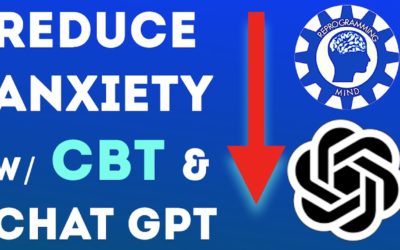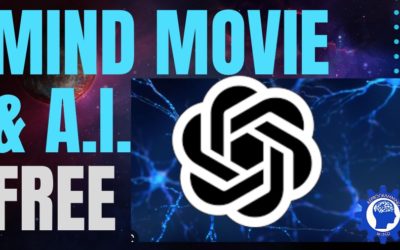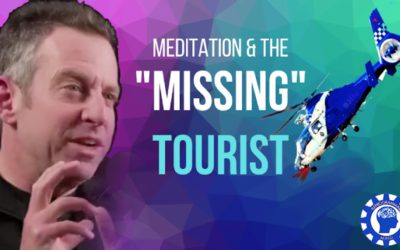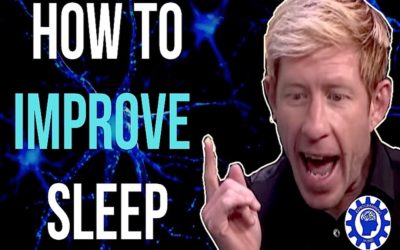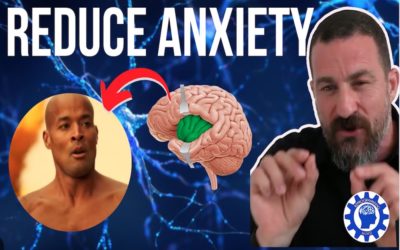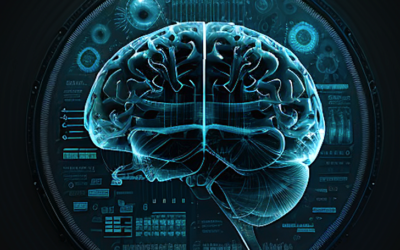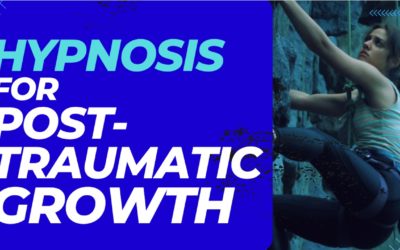Dr. Richard Davidson, a neuroscientist from the University of Wisconsin in Madison, and Dr. Sara Lazar, a neuroscientist based out of Massachusetts General Hospital and the Harvard Medical School gives an interview on his findings with meditation and its effects on the brain.
The following interview has been edited and condensed for clarity.
Host Bob Macdonald: Dr. Davidson, what was the most striking thing you found when you studied the meditation experts the Tibetan Buddhist monks?
Richard Davidson: Probably the most striking thing was in terms of the scientific findings was the presence of these very high amplitude gamma oscillations that occurred in the meditation period when they were meditating, but also were very prominent in their so-called baseline state. And I should say that these are if you will professional meditators. These are people who have an average of about 34,000 hours of lifetime practice and listeners can go do the arithmetic at home. But that's a pretty big number.
BM: What was going on in their brains that's different from what would be going on in say my brain?
RD: One of the important characteristics of these long term meditators if you will is that the distinction between the state of meditation in their ordinary state if you will is blurred.
This is the what we think of as the transition from a state into a trait. That is, it becomes an enduring characteristic of their minds and brains, rather than something transient that occurs only when they practice meditation.
Dr. Sara Lazar: Well we looked at brain structure and what we found is that there's several brain regions where there is more gray matter in the long term meditators compared to non-meditators. And as Dr. Davidson said that when you start meditating regularly that there is a shift that there's a blur between your meditation state and your everyday state.
And so we're interpreting these differences in gray matter to reflect that. That this is perhaps why and how you can get these shifts you're not meditation state looks more like your meditation state - the brain actually starts to rewire itself. And that's what we saw evidence for in these long term meditators.

SL: The most pronounced changes were in the insula. This is an area that's involved in integrating sensory experiences with cognitive thinking. And so you could think of that, sort of in a very loose hand-waving sort of way, as the mind body sort of area. We also found areas in the front of the brain which is an area involved in rational thinking and decision making.
BM: Dr. Lazar, we hear a lot about enlightenment, if meditation really does work. From a scientific point of view what is that possible do you see it?
SL: I think it's important to make a distinction between people who meditate for 20, 30, 40 minutes a day for stress reduction and people who are really committed to obtaining enlightenment. As Dr. Davidson pointed out, you could think of those monks as being professional meditators. And so I think that it really takes that sort of commitment -- full time commitment for many, many years -- in order to reach enlightenment. For the average Joe who's just meditating for stress reduction that that's not really a realistic goal.
BM: Dr. Davidson, you say that meditation could make people feel worse. What do you mean by that?
RD: It can exacerbate depression, it can precipitate psychosis. It can do some harm. It's really important for an individual who may be predisposed and have a history of some psychiatric difficulty to engage in meditation practice under the guidance of a teacher who is both a mental health practitioner as well as a meditation teacher.
And often if a person I think is doing worse it could very well be because the nature of the instruction is not as attuned to where the person is as it might be.
BM: Dr. Lazar, how do you feel about people going to a phone app for their guided meditations without a teacher present?
SL: The apps are like a book or any other recording or any other things that have existed in the past. I think they're great as a supplement but I don't think anything compares to having a teacher that you can talk to about your experience.
The Power of Words: 7 Compelling Reasons to Write a Book
At the heart of every writer’s motivation lies the desire to leave behind a legacy. A book, once published, becomes an indelible part of the author’s identity, forever immortalizing their thoughts and experiences. Whether it’s a memoir, a novel, or an educational work, books hold the power to connect with readers across generations, leaving an enduring impact on society.
What is Death Meditation?
Death meditation is a contemplative...
Chat-GPT to Uncoddle the American Mind – How to use AI to Reduce Anxiety
Co-author of the ‘Coddling of the American Mind’, Greg Lukianoff was experiencing anxiety depression and so what worked for him was to challenge the negative self-talk with CBT.
Here is a quote from a clip of when he and co-author Jonathan Haidt were being interviewed by cognitive psychologist Dr. Jordan Peterson.
‘If you just learn what these distortions are and practice everyday to talk back to the more anxious or depressed voices in your head, it’s an incredibly effective treatment for depression anxiety and it absolutely changed my life’. – Greg Lukianoff
Meditation Reinvented: How Proper Back Support is Changing the Game
As many seasoned and novice meditators alike can attest, achieving a state of complete relaxation can be hampered by physical discomfort. Enter the meditation chair with back support—a transformative innovation that’s changing the meditation landscape.
How to Make a Mind Movie for Free with AI, Chat GPT and the Dr Joe Dispenza formula
learn how to make your own customized personalized mind movie with an ancient technique and some of the Dr Joe dispenza formula and then combine all this using free software to generate an incredibly effective video to reprogram your mind and revolutionize the way you think and feel especially for improving decision making and your emotion regulation skills.
How to Overcome Anxiety Depression
Anxiety and depression are complex mental health conditions that can be caused by a variety of factors, including genetics, life experiences, and stress. While there is no one definitive way to completely stop anxiety and depression, there are several steps you can take to manage and reduce their symptoms.
A Daily Plan for Cultivating an Anti-Fragile Mindset
One effective way to cultivate an anti-fragile mindset is by incorporating daily habits and routines that promote resilience, growth, and learning. In this article, we will provide a daily planner for cultivating the mindset for anti-fragility.
How to Develop an Anti-Fragile Mindset
An anti-fragile mindset is one that is not just resilient but is also adaptable and able to grow stronger when faced with adversity. It’s a mindset that embraces change, learns from failures, and thrives under pressure.
What’s an Anti-Fragile Mindset?
An anti-fragile mindset is one that not only bounces back from adversity but actually thrives in the face of it. In this article, we will explore what an anti-fragile mindset is and how to develop it.
What Strategies Improve Mental Well-Being and Resilience?
Reappraisal involves reevaluating a situation or event by interpreting it in a different way. This technique can be used to shift one’s focus from the negative aspects of a situation to the positive. For example, if an individual receives negative feedback on a project, they can reappraise the situation by recognizing that the feedback is an opportunity to improve their skills and knowledge. Reframing, on the other hand, involves changing the meaning of a situation or event by looking at it from a different perspective.
Sam Harris, the Missing Tourist and the Meditative Journey.
The word “metaphor” comes from two words in ancient Greek, meta meaning ‘over’ and ‘pherein’ meaning ‘to carry’ so translated together is “to carry over.”
‘When we use a metaphor, we carry over or transfer a message to another person’s mind in terms of something else (i.e. a story, myth, etc).
The listener then takes the framework or structure of the metaphor and interprets them in the framework of his or her own experience/s.
In this way, the listener also uses other terms to term about something.
How to Improve sleep and make sleeping better with Neuroscientist Matt Walker
How to improve sleep is a common search along with ways for getting better sleep.
To find the answer, a sleep expert is required.
Matt Walker, professor of neuroscience at the University of California, Berkeley and author of the book ‘Why We Sleep’ shares how to improve your sleep
and describes why these triggers work so you will know how to fall asleep faster.
And first he talks about a very popular drug that lots of people take multiple times daily, which is caffeine.
Huberman Lab: How to Reduce Anxiety Without Medication
Dr. Andrew Huberman explains how the left dorsal lateral prefrontal cortex can calm us down by accessing different rule sets which can be useful as a way to reduce anxiety without medication and shows the benefit of reframing or reappraising stimuli in less maladaptive ways.
What Coping Strategy is Better To Get Over a Breakup – Distraction or Reappraisal?
reappraisal can help to change the way an individual thinks about their breakup and the relationship. Instead of focusing on the negative aspects of the breakup, such as feelings of rejection or abandonment, an individual can reframe their thoughts to focus on the positive aspects of the situation. For example, they may see the breakup as an opportunity to learn more about themselves and their needs, or as a chance to grow and move on to a better, happier relationship in the future.
7 Trading Tips to Improve Your Trading Mindset
Trading in the financial markets can...
27 Quotes about Moving On
Quotes about moving on can help a...
Finding Peace and Posture: The Meditation Chair Revolution
One aspect of meditation that’s often overlooked, however, is the physical support we use during our practice. Enter the meditation chair with back support – a revolution in achieving both peace and perfect posture.
“Breakup Survival Tips: How to Get Through It”
Breakups can be especially difficult...
57 Stages of Change Questions to Get Over a Breakup.
Getting over a breakup is like...
What are 50 Known Ways to Potentially Damage Brain Cells?
Exposure to toxic chemicals or pollutants
Lack of oxygen to the brain
Stroke
Infections, such as meningitis or encephalitis
Nutritional deficiencies
Chronic stress
Smoking
High blood pressure
Diabetes
Lack of sleep
Age-related degeneration
Genetics
Certain medications
Radiation therapy
Why the Headspace App is the Best for Healthcare Workers and Beginners
The best deal is the Headspace discount for healthcare workers.
Headspace has free access for all NHS colleagues until Sunday 31 December 2023. If you’re looking for
headspace for healthcare workers, there is a free trial to check it out and if you’re a healthcare worker, that free trial lasts until the end of the year. This is a handy way to try some science backed ways to improve well-being and have some meditations to unwind with.
Can Meditation Heal the Body and Improve Genes?
Meditation is relatively inexpensive and low-risk, it has been shown to have positive effects on a wide range of physical and mental health conditions. For example, it can lower blood pressure, improve immune function, and reduce symptoms of anxiety and depression. Furthermore, it is a skill that can be learned and practiced by anyone regardless of their background, age, and level of health.
Lady Gaga, Meditation and the Dalai Lama
Lady Gaga interviews his holiness the Dalai Lama to discuss the benefits of compassion and mindfulness meditation
“Change in humanity must start from individuals,” said the Dalai Lama. “We created this violence, so we can reduce this violence.”
“We are unified in our humanity, and the only thing that we all know and we all appreciate in one another is kindness, and this has to come before all things,” Lady Gaga said.
27 Ideas for Your Vision Board
What is a Vision board? A vision...
How to Succeed After Divorce: 10 Successful Authors and What They Wrote After Being Divorced
If you’ve had a divorce and want a distraction, you might want to consider doing a project to keep yourself busy. Maybe it’s rearranging the books, or doing some redecorating, maybe flipping the mattress, or taking a new class. But if you’re going to be busy, maybe you can also do something like creating a timeless asset e.g. a book.
The benefit of writing a book is that that it can help you recover after a divorce in a couple different ways.
David Goggins’ Mindset: 10 Psychological Techniques for Pushing Oneself Beyond Limits
As a motivational speaker, his authenticity and the “Accountability Mirror” concept have inspired millions to take control of their lives. In essence, David Goggins’ mindset teaches us that with unwavering determination, we can shatter our perceived limits and achieve the extraordinary.
How a Breakup Can Effect Mental Health and How Hypnosis Can Help
The breakup of a romantic relationship can be seen as an emotionally upsetting event that can lead to multiple symptoms related to sadness, grief and depression and can also result in an increased risk of developing a depressive episode or takotsubo cardiomyopathy (broken heart syndrome) which is a type of heart attack by emotional duress such as a sudden illness, the loss of a loved one, a serious accident, or a natural disaster.
Understanding Unplanned Childlessness and Mental Health: A Comprehensive Analysis
Recent societal shifts in delayed...
Breaking the Habit of Being Yourself by Dr Joe Dispenza – Review Chapter 5
In this post we look at how to break the habit of being yourself by doing a review of chapter 5 in the Dr Joe Dispenza book, Breaking the Habit of Being Yourself.
Chat-GPT and MidJourney to Get Over a Breakup like a Warrior Princess
The story is quite simple and is about a woman that has a breakup and then gets out of it by getting to work on the purpose of her life which is to be a warrior.
In about 20 seconds, Chat GPT typed out this story and then the story was turned into illustrations using Midjourney which is an online illustrating machine that uses text based prompts. And below is the combination of these two technologies.
Hypnosis for Resilience and Post Traumatic Growth
Welcome to this hypnosis session on...
Chat GPT Artificial Intelligence Hypnosis Script for Confidence.
https://www.youtube.com/watch?v=tLRYjy6...
Hypnosis, Therapy, and Online Applications: A Comprehensive Guide
If you're seeking therapy, hypnosis...


